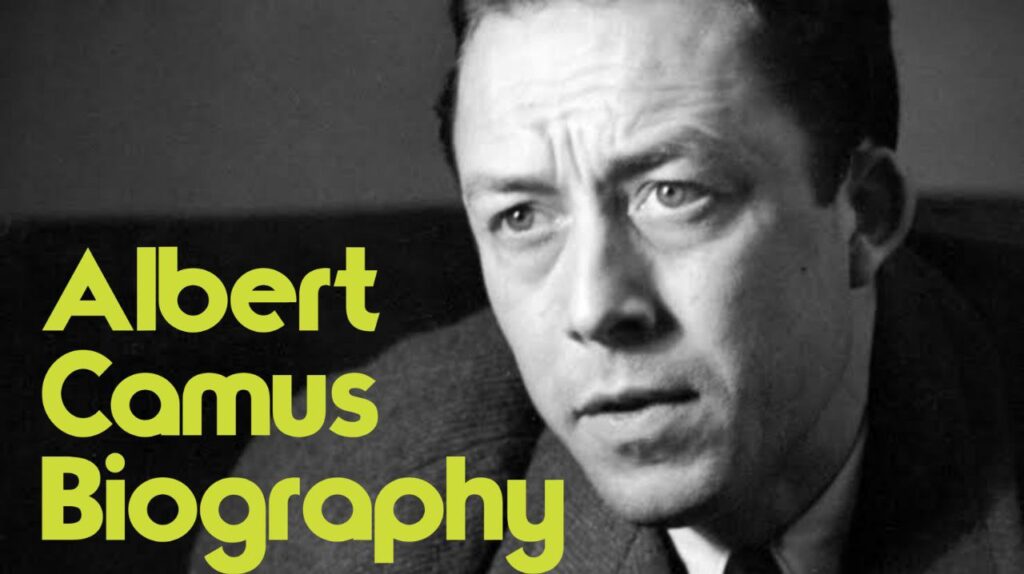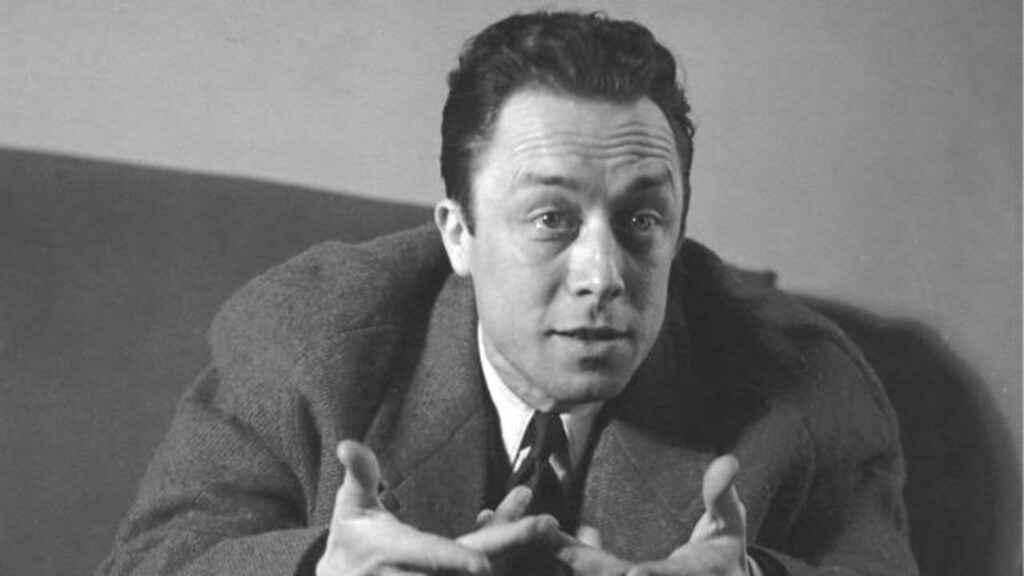A Journey into the Life and Works of the Nobel Laureate: Albert Camus Biography

Introduction
Few individuals in the world of literature have the same deep resonance as Albert Camus. Camus, who arrived in Mondovi, French Algeria, on November 7, 1913, went on to become one of the most significant thinkers and authors of the 20th century. His compelling articles, which examined existentialism as absurdism and the human state of affairs, had a lasting impression on literature. This thorough biography explores Albert Camus’ life, philosophical views, and literary accomplishments in order to shed light on his intellectual development and creative impact.
Albert Camus Early Years and Formative Periods
In the little coastal village of Mondovi, French Algeria, Albert Camus was born into a modest family of French ancestry. His mother, Catherine Sintes, worked as a cleaning woman, while his father, Lucien Camus, was a vineyard worker. Sadly, Camus’ father lost himself in action during World War I, leaving the family struggling financially. Despite the difficulties, Camus showed excellent academic ability and was awarded a scholarship to further his education.
Albert Camus Aspirations in Education and Literature
Camus enrolled at the Catholic College of Algiers as part of his academic journey. He did really well in school and became quite interested in philosophy, literature, and theatre. Camus came to be identified with the absurdist school of thought, which emphasises the inherently meaningless nature of life. His intellectual inclinations served as the basis for his subsequent literary creations.
The Ascendance of a Creative Titan
By writing for several newspapers and literary publications, Camus established himself as a famous writer and journalist. He came to be connected with the existentialist movements, a school of thought that examines personal autonomy, free will, and the pursuit of purpose in an absurd reality. His first book, “The Stranger,” which arrived in 1942 and received positive reviews, proved his talent as a writer.
Investigating existential themes
The idea of absurdity, which Camus thought pervaded human life, was one of his main topics. Through his writings, like “The Plague” and “The Fall,” Camus examined the moral issues people face in an absurd world. His characters struggle with the intricacies of relationship building as well as the meaning of existence and the certainty of death. These existential inquiries struck a chord with readers and confirmed Camus’ reputation as an insightful thinker.

Political activism and scholarly pursuits
Albert was a political activist and a social justice advocate, in addition to his literary work. He stood up for human rights, criticised imperial rule, and expressed resistance to dictatorial regimes. Camus’ writings, lectures, and public appearances all reflected his trust in the inherent dignity of every person. In 1957, he was awarded the Nobel Prize in Art in recognition of his contributions to literature and his dedication to defending moral principles.
The Legacy of Philosophy
Scholars, theorists, and readers all around the globe are still inspired by Camus’ philosophical beliefs. His idea of the ridiculous—the idea that we exist in a chaotic and unpredictable cosmos—continues to be an interesting topic of research. Later philosophers and authors have been affected by Camus’ focus on the value of individual freedom, morality, and the search for meaning. His creations serve as enduring analyses of the human predicament.
Conclusion
Algerian-French philosopher and author Albert Camus made a lasting impression on both philosophy and literature. Camus enthralled readers and sparked intellectual debate via his examination of existential topics and his exposition of the futility of life for humans. His reputation as a visionary is solidified by his literary legacy, which is linked with his lifetime commitment to social justice.
thinker. As we study Camus’s life and writings, we find a moving example of how literature can shed a spotlight on the intricacies of the human experience.
Disclaimer: The aforementioned article is fictitious and was produced by an AI language programme. Despite the fact that every effort has been made to offer correct information, this page should not be used as a reputable source for biographical or academic research. For thorough and accurate information on Albert Camus and his life, please check reliable sources.


Pingback: Leo Messi Biography Story » Short Biographys
Pingback: Ruskin Bond Biography Works And Life » Short Biographys
Pingback: Charleston White Biography, Net Worth Age Birthday » Short Biographys